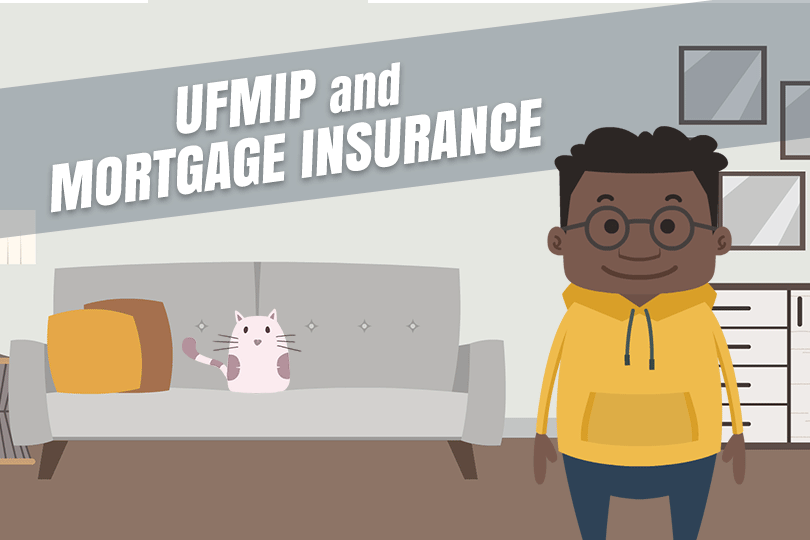Homeowner's Insurance - Why Do We Need It?
March 6, 2021
Homeowner’s insurance provides coverage to repair or rebuild your home, in the instances that are spelled out in the policy. Also known as hazard insurance, homeowner’s insurance typically covers damages to the house that occur from fire, smoke, theft, vandalism, and bad weather such as lightning, wind, or hail. Most policies also cover things inside in the home, such as furniture, electronics, and other possessions. They also cover the medical expenses and legal fees if people other than those living in the home are injured on the property.
Homeowner’s Insurance vs. Mortgage Insurance
Securing a homeowner’s insurance policy is required by your lender, but it is important that you do not confuse this policy with your mortgage insurance. While it is common to mix the two up, they are not the same! Homeowner’s insurance protects the borrower, while mortgage insurance protects the lender.
In the case of FHA loans, a monthly mortgage insurance premium (MIP) is paid along with the Up-front Mortgage Insurance Premium (UFMIP). In addition to funding the FHA, this mortgage insurance is there to protect FHA-approved lenders in case the borrower cannot repay the loan.
Similarly, conventional loans require private mortgage insurance (PMI). PMI is charged when borrowers make less than a 20% down payment on a conventional loan, making it riskier on the lender. The private mortgage insurance typically costs between 0.5% and 1% and is paid monthly until the borrower pays down enough on the principal amount - generally 20%, when the loan is no longer considered high-risk).
Never Assume
Unless specifically spelled out in your policy, do not assume that you are covered. Always keep in mind that you cannot claim coverage for issues that are not specified in your policy. This includes floods and earthquakes, but it may also apply to water damage from sewer pipes or storm drains, etc. Remember that flood and earthquake insurance is always sold separately. If you buy a home in an area designated as a flood zone or one that is prone to earthquakes, your lender may require that you purchase these additional policies.
Read and re-read your insurance policy so you know exactly what you are covered for. The wording of your agreement may be complicated, so take the time to ask your insurance agent as many questions as you have.
Costs and Coverage
The cost of your homeowner’s insurance policy varies based on several factors. First, there is the location of your home. This includes a bunch of factors within itself, such as how far your home is from a fire station, or how close it is to a body of water. Expect to pay a higher premium if you live in a high-crime neighborhood.
The age of your home will also affect the amount you pay. If you are purchasing a home built over 20 years ago, it stands to reason that there will be some upcoming claims for renovation. On the other hand, big upgrades such as a new roof or plumbing can bring down the cost of insurance.
A big factor that affects your insurance cost is the coverage you select. You can choose to have more extensive coverage in your policy if you have more valuables in your home, or to protect yourself from liability issues, but this will understandably raise your premium. The premium also varies based on the deductible you select. A higher deductible could reduce your premium costs up to 25%.
Finally, your insurance premium might look different from someone with the exact same policy because of your credit history. While a provider cannot refuse a homeowner, coverage based on their credit, they might offer a discount on the policy if their credit score is high enough. This gives borrowers one more reason to work on their credit when getting ready to buy a home.
------------------------------
RELATED VIDEOS:
Understand the Reasons for Private Mortgage Insurance
Carefully Read Your Closing Disclosure
Buying a Home With a Co-Borrower

FHA Loan Articles
February 17, 2025The federal government backs FHA home loans, which allows participating FHA lenders to offer lower down payment options and more lenient credit requirements. How much do you really know about your FHA home loan options and how they compare to other mortgage choices?
February 13, 2025For many college graduates, student loan debt is a concern. A common question is how this debt impacts the ability to buy a home. This Q&A explores the relationship between student loans and FHA loan approvals. How much do you know about how your student loan debt affects your ability to be approved for a mortgage?
February 12, 2025Choosing between FHA and conventional home loans can be daunting for some first-time home buyers. What are the concerns between these two programs, and what does each one offer the borrower? We examine some of the key issues in our question-and-answer session about FHA mortgages versus conventional loans.
February 11, 2025Established in 1934 as part of the National Housing Act, the FHA's primary mission is to stimulate the housing market by providing mortgage insurance to lenders. This insurance reduces the risk associated with lending to borrowers who may otherwise be considered higher risk, encouraging lenders to offer more favorable terms, such as lower down payments and more flexible credit requirements. A key element of the FHA program is its commitment to fair housing, which is deeply rooted in the Fair Housing Act.
February 10, 2025How much do you really know about the home buying process? One major factor in protecting your new investment is knowing how the title search process works and why you need to have one done. This quiz will assess your comprehension of what a title search entails, why it's so important when using an FHA loan, and how it protects you as a buyer. From identifying potential liens to guaranteeing clear ownership, a title search plays a critical role.







